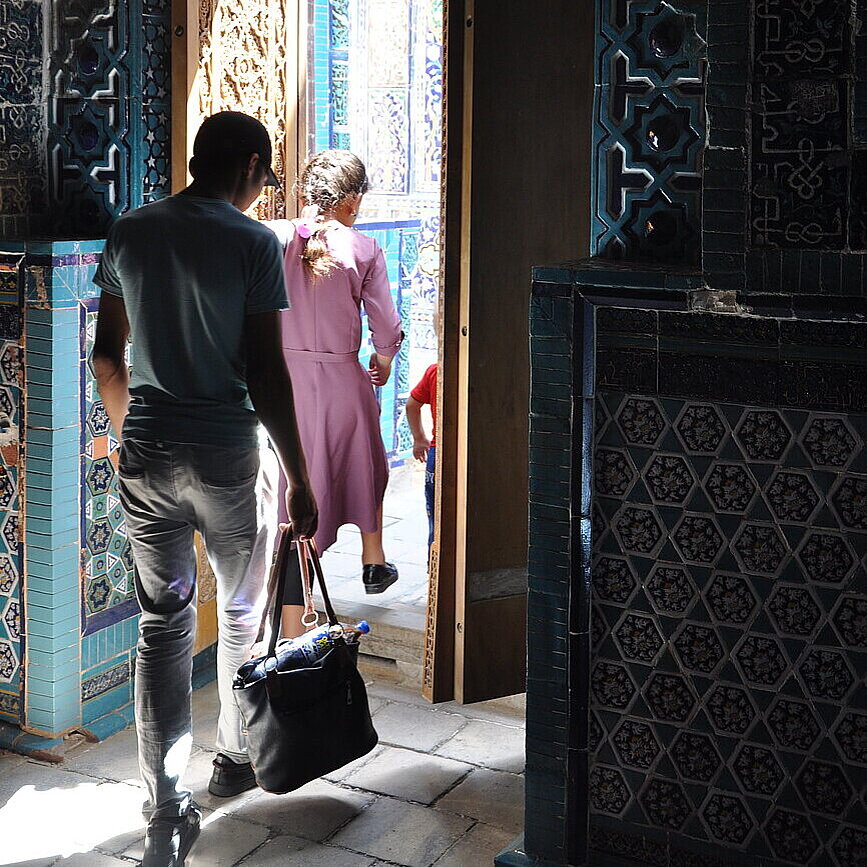Living in and with cultural heritage

Cultural heritage is of enormous importance throughout Central Asia. This is not only true for topdown state branding, identity building and the promotion of tourism but also for daily, affective or unspectacular encounters of local communities with cultural heritage. What is considered cultural heritage by different stakeholders, and who can claim legitimate right to engage with cultural heritage is not always coherent. In the Central Asian republics, the understanding of cultural heritage and how to live with or even in it is informed by current national and international discourses as much as it is by colonial legacies and thus reflects societal change as well as geopolitical orientations. With its venue, Samarkand, the Summer Academy is literally situated within a UNESCO cultural heritage site and thus in an ideal place to explore past and present experiences of living in and with cultural heritage. We regard heritage here as cultural infrastructure that shapes discourses, practices and politics on different scales, from the local to the translocal. The material and immaterial legacies around us will offer multiple vantage points for discussing theories, methods, and approaches to cultural heritage.
Where: Samarkand
When: Sept. 30 – Oct. 10 2024
Language: English
Level: Graduate students (MA and PhD), exceptions for advanced BA (see below)
Credits: 10 ECTS
Course directors: Jeanine Dagyeli (University of Vienna), Florian Schwarz (Austrian Academy of Sciences)
Programme:
Through a programme of lectures, reading/discussion sections, cultural visits and small research exercises, participants are offered diverse ways of engaging with cultural heritage, practices and meanings around it, as well as with contested, muted or `difficult' heritage. At the same time, participants will acquire and deepen knowledge about the cultural history of Samarkand, Uzbekistan and Central Asia. Specific attention will be paid to questions of cultural heritage in the urban space (e.g. urban planning, archaeology in the urban space, monuments and their context or changes in concepts of preservation of sites of historical interest through time). Pending confirmation, the programme will include an excursion to Bukhara.